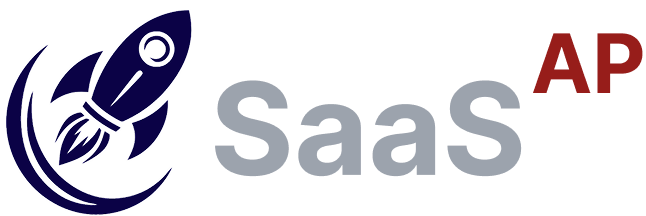Exploring the world of affiliate marketing presents a smart opportunity. It’s an excellent method for individuals to generate passive income or even establish a significant business by promoting products or services they endorse. However, the affiliate marketing landscape is diverse. It involves more than just placing retail links on a blog.
Today, distinct forms of affiliate marketing exist, with two prominent ones being SaaS affiliate marketing and traditional affiliate marketing. What sets them apart? Which approach suits different marketers? And, the crucial question for many: which type of affiliate marketing typically yields higher earnings? Let’s examine the specifics of SaaS Affiliate Marketing vs. Traditional Affiliate Marketing.
Understanding Traditional Affiliate Marketing
Consider traditional affiliate marketing as the foundational model in this field. It has been utilized for a long time and centers on promoting physical goods or digital products requiring a single purchase. This includes items such as:
- Fashion and Apparel: That stylish item seen on social media, purchased via a link, likely earned an affiliate a commission. This is classic traditional affiliate marketing.
- Electronics: Products like televisions, computers, and gaming consoles fall under this marketing category.
- Books: From bestsellers to specialized guides people intend to read.
- Online Courses (One-Time Purchase): Educational content on topics like photography, coding, or even baking, bought with a single payment.
The primary objective in traditional affiliate marketing is straightforward: facilitate a sale and receive a commission. When a customer purchases the product through an affiliate link, the marketer gets a percentage. It’s a direct transaction-based marketing model.
The Rise of SaaS Affiliate Marketing
SaaS is an acronym for “Software as a Service.” Instead of buying a physical item or a digital product outright, users pay a recurring fee (monthly or annually) to access software online. Think of it as subscribing to software rather than owning it. Consequently, SaaS affiliate marketing involves promoting these kinds of subscription-based software solutions. Examples include:
- CRM Software: Tools designed for managing customer relationships and sales processes.
- Email Marketing Platforms: Services like Mailchimp or ConvertKit, used for sending newsletters and campaigns. This is a key area for SaaS affiliate marketing.
- Project Management Tools: Applications such as Asana or Trello, facilitating team collaboration.
- Website Builders: Platforms like Wix or Squarespace, enabling users to create websites without extensive coding knowledge.
- SEO Tools: Software helping businesses improve search engine rankings, often involving keyword analysis and site audits. Marketing these tools is SaaS affiliate marketing.
A significant advantage of SaaS affiliate marketing is the potential for recurring commissions. Rather than a single payout, the affiliate often earns a percentage of the customer’s subscription fee for as long as that customer remains active. This recurring revenue stream is a major appeal of this type of affiliate marketing. Exploring SaaS Affiliate Marketing vs. Traditional Affiliate Marketing highlights this difference.
SaaS Affiliate Marketing vs. Traditional Affiliate Marketing: Core Differences
Having defined both SaaS affiliate marketing and traditional affiliate marketing, let’s break down the fundamental distinctions between them:
- Product Type: This is the most evident difference. Traditional affiliate marketing typically involves physical goods or one-time purchase digital products, while SaaS affiliate marketing focuses exclusively on subscription-based software. The SaaS model is distinct.
- Sales Cycle: The sales process for SaaS products often takes longer. Potential customers usually conduct thorough research before committing to a paid subscription. They might utilize free trials, request demos, or read reviews. Traditional affiliate marketing, conversely, frequently has a shorter sales cycle. People often see a product they like, click the affiliate link, and make the purchase relatively quickly. This marketing approach differs significantly.
- Commission Structure: Traditional affiliate marketing usually offers a one-time commission based on the sale price (often lower percentages). SaaS affiliate marketing, however, commonly features recurring commissions (often higher percentages), which can accumulate into substantial, ongoing income. Some SaaS programs might also offer an initial bonus in addition to recurring payments. This is a key point in the SaaS Affiliate Marketing vs. Traditional Affiliate Marketing comparison.
- Marketing Strategies: Due to the differing product types and sales cycles, the marketing tactics used by affiliates also vary. SaaS affiliates often concentrate on creating valuable content (like blog posts, e-books, case studies) that educates potential users about the software’s long-term benefits. Traditional affiliates frequently rely more on social media promotions, discount codes, and product reviews to encourage immediate sales. Effective affiliate marketing requires tailored strategies.
- Customer Relationship: In the SaaS model, the relationship between the customer and the software company is typically ongoing. This incentivizes SaaS affiliates to promote high-quality products with excellent customer support, fostering long-term user retention. In traditional affiliate marketing, the interaction is often more transactional, focused on the initial sale.
SaaS Affiliate Marketing vs. Traditional Affiliate Marketing: Which Pays More?
Now, let’s address the pivotal question regarding earnings potential in SaaS Affiliate Marketing vs. Traditional Affiliate Marketing. Which form of affiliate marketing generally offers higher returns? The answer, as is often the case, is: it depends.
- Traditional Affiliate Marketing Potential:
- Pros: The shorter sales cycle allows for potentially driving a high volume of individual sales quickly. A wide variety of products are available.
- Cons: Commission rates are often lower (e.g., 1-10% for physical products). The one-time commission nature means affiliates must constantly generate new sales to sustain income. This is a core aspect of traditional affiliate marketing.
- SaaS Affiliate Marketing Potential:
- Pros: Commission rates can be significantly higher (e.g., 20-50% or more, often recurring). Recurring revenue creates a more stable, predictable income stream over time. Higher customer lifetime value means each referred customer contributes more revenue long-term. This is a key strength of SaaS affiliate marketing.
- Cons: The sales cycle is generally longer. More effort may be needed to educate and persuade potential customers. The specific SaaS niche might be narrower than some traditional affiliate marketing areas.
- The Verdict:
While traditional affiliate marketing can certainly be profitable, SaaS affiliate marketing often presents greater potential for higher, sustained long-term earnings due to its recurring commission structure. Imagine referring just a few customers to a valuable SaaS product and earning commissions on their monthly or annual subscription fees for years. That illustrates the power of recurring revenue in SaaS affiliate marketing. The SaaS Affiliate Marketing vs. Traditional Affiliate Marketing debate often highlights this financial advantage.
However, achieving success in either type of affiliate marketing demands hard work, dedication, and a solid understanding of the target audience and effective marketing techniques.
Choosing the Right Affiliate Marketing Path for an Individual
So, which style of affiliate marketing -SaaS affiliate marketing or traditional affiliate marketing – is the better fit for a particular marketer? Here are several factors to consider:
- Personal Interests: What topics is the individual passionate about? Is there a strong interest in technology and software (SaaS)? Or are they more drawn to areas like fashion, consumer goods, books, or lifestyle products (Traditional)? Aligning with interests makes marketing more authentic.
- Target Audience: Who is the intended audience? What are their specific needs, problems, and interests? Understanding the audience helps determine if SaaS solutions or traditional products are more relevant.
- Marketing Skills: What are the individual’s strengths? Are they adept at content creation like writing informative blog posts or creating detailed video tutorials (often suited for SaaS affiliate marketing)? Or do their skills lie more in running engaging social media campaigns and creating compelling advertisements (potentially better for driving faster sales in traditional affiliate marketing)?
- Time Commitment: How much time can be realistically dedicated to affiliate marketing efforts? SaaS affiliate marketing often requires more initial work to create high-quality, educational content, but this investment can yield long-term recurring revenue. Traditional affiliate marketing might offer quicker wins but requires continuous promotion for ongoing income.
Ultimately, a practical approach is to experiment and observe what yields the best results for the individual’s circumstances. It’s even possible to engage in both SaaS affiliate marketing and traditional affiliate marketing simultaneously; there’s no rule limiting marketers to just one path.
Tips for Success in SaaS Affiliate Marketing
For those deciding to pursue SaaS affiliate marketing, here are a few tips to enhance the chances of success:
- Focus on Providing Value: Avoid promoting SaaS products randomly. Create genuinely helpful content that educates the audience and demonstrates how the software solves their specific problems. Effective marketing is value-driven.
- Build Trust: Be transparent about affiliate relationships. Only recommend SaaS products that are genuinely believed in and offer real benefits. Honesty is crucial in affiliate marketing.
- Select the Right SaaS Partners: Look for high-quality SaaS products with solid reputations and fair, supportive affiliate programs. Research the SaaS company and its marketing support for affiliates.
- Track Performance: Utilize analytics tools to monitor website traffic, click-through rates, conversions, and commissions. Data helps identify successful marketing strategies and areas needing improvement.
- Stay Updated: The SaaS industry and affiliate marketing landscape are constantly evolving. It is important to stay informed about the latest trends, technologies, and best practices in SaaS affiliate marketing.
Conclusion: SaaS Affiliate Marketing vs. Traditional Affiliate Marketing
Both SaaS affiliate marketing and traditional affiliate marketing represent viable pathways for earning income online. While traditional affiliate marketing offers opportunities for high-volume, quick sales, SaaS affiliate marketing frequently provides the potential for greater long-term earnings and stability through recurring commissions. The best choice between SaaS Affiliate Marketing vs. Traditional Affiliate Marketing depends heavily on an individual’s interests, audience, skills, and goals. Therefore, thorough research, experimentation, and finding what works best personally are key steps toward success in the dynamic field of affiliate marketing.
The key difference lies in the type of product being promoted. SaaS affiliate marketing promotes subscription-based software, while traditional affiliate marketing focuses on physical or one-time-purchase digital products.
SaaS affiliate marketing often pays more in the long run due to its recurring commission model, allowing affiliates to earn ongoing income as long as the referred customer stays subscribed.
Yes. Traditional affiliate marketing usually has a shorter sales cycle, as consumers often make quick decisions on physical or one-time purchase items. SaaS products require longer consideration periods, including trials or demos.
Absolutely. Recurring commissions are one of the biggest advantages of SaaS affiliate marketing, meaning you can earn a portion of a user’s monthly or annual subscription for as long as they remain a paying customer.
Products like clothing, books, electronics, and one-time-purchase online courses are typical in traditional affiliate marketing.
SaaS affiliate marketers benefit from skills in content creation, SEO, email marketing, and product education, as they often need to explain complex software benefits clearly and persuasively.
Yes. There’s no rule preventing you from doing both. Many successful affiliates diversify their approach to maximize revenue and test what works best for their audience and niche.
SaaS customers often subscribe for months or years, so each referral has a higher lifetime value, resulting in more total earnings for affiliates compared to a one-time sale in traditional models.

